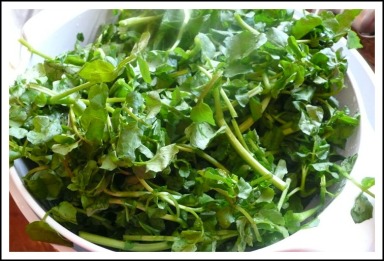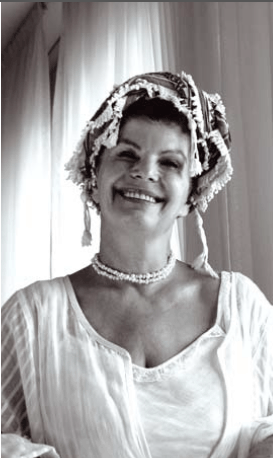We bring you the 7th installment of ‘The 16 Foundations of Health and Healing’. Over the following months, we will be exploring each of these 16 components in more detail, one at a time. These are the foundations of InspireHealth and they will provide you with valuable information and tools that you can start applying immediately in your day-to-day life. Whether you have had cancer or not, this information provides essential ingredients to living healthy, joyous, and passionate lives.
The Stresses of Modern Life
There are many sources of personal stress in modern life. Working at a job you don’t like, having unresolved issues in a relationship, being under financial pressure, or feeling ‘trapped’ in a situation you think you can’t control are just some of the common major sources of stress. Most of us can be unaware of the degree to which we are affected by stress, or even unaware of some of the major stressors in our life. Numerous studies have clearly shown that stress decreases immune function 1.
Forgiveness Liberates Us
 In order to optimally support our immune system and healing journey, it is important to honestly explore and acknowledge sources of stress in our lives and begin to deal effectively with them. Unresolved issues, often dating back many years, are a major source of internal stress for many people. These issues are generally unconscious and may be painful to examine. Dealing with them can, in some circumstances, require a substantial shift in perspective, beliefs, lifestyle, relationships, values and goals. Once we begin to release issues from the past, we can live in the moment and see the world, ourselves, and others more clearly and openly.
In order to optimally support our immune system and healing journey, it is important to honestly explore and acknowledge sources of stress in our lives and begin to deal effectively with them. Unresolved issues, often dating back many years, are a major source of internal stress for many people. These issues are generally unconscious and may be painful to examine. Dealing with them can, in some circumstances, require a substantial shift in perspective, beliefs, lifestyle, relationships, values and goals. Once we begin to release issues from the past, we can live in the moment and see the world, ourselves, and others more clearly and openly.
Forgiveness is a greater gift to ourselves than to those we forgive. It does not mean condoning the past behavior of others – it is about forgiving – accepting the past as the past. Forgiveness liberates us from the heavy burden of holding onto the past so that we can be more fully in the present and live with more compassion and joy.
Be True to Yourself
Another source of stress in our lives is the stress created when we think that we ‘should’ do or say something when our inner wisdom is telling us to do or say something different. For example, we may think that we ‘should’ do an errand for someone else when what we really want to do is take care of ourselves. In this way, we take care of another person’s needs instead of our own. For many, this can be a significant source of tension and inner conflict. We can end up feeling resentment towards another when, in reality, it is our responsibility to say ‘yes’ when we mean ‘yes’ and ‘no’ when we mean ‘no’.
We may be concerned that, by being true to ourselves, we risk that others may not like our choices or may feel abandoned. Our inner critic may tell us that we are being selfish. In reality, learning to take care of ourselves is the best way that we can help those that we love. Being true to ourselves takes courage and strength and the willingness to allow ourselves and others to know us and our wants and needs more fully. When we model this for others, we help them reconnect with their own health and healing.
Letting Go
Sometimes in the midst of what feels like overwhelming stress, it can be helpful to ‘let go’ of having all the answers and being in control of everything. We may feel fear and anxiety about being so vulnerable yet sometimes ‘letting go’ helps open the door to new possibilities. One potentially liberating and helpful way to deal with stress is to talk with others. Such conversations often enable a shift in perspective, leaving us feeling more empowered and hopeful. Friends, support groups, or professional counseling can all help to provide this support. Research has shown that psychological support and counseling can significantly improve survival 2,3.
 InspireHealth physicians and many of its practitioners are also available to support you on your journey. In addition, the B.C. Cancer Agency and other community groups and individual practitioners provide counseling. Meditation, yoga, exercise and other forms of relaxation can all reduce the physical toll that stress has on the body and all these methods can contribute to healing. Sleep, rest, journaling and laughter are also good antidotes to stress. Cultivate an attitude of gratitude by noticing and appreciating all that you have and all that you are.
InspireHealth physicians and many of its practitioners are also available to support you on your journey. In addition, the B.C. Cancer Agency and other community groups and individual practitioners provide counseling. Meditation, yoga, exercise and other forms of relaxation can all reduce the physical toll that stress has on the body and all these methods can contribute to healing. Sleep, rest, journaling and laughter are also good antidotes to stress. Cultivate an attitude of gratitude by noticing and appreciating all that you have and all that you are.
Discover Ways to Relax
Being diagnosed with cancer is itself a stressful life event. Recent research has shown that the stress of a cancer diagnosis can suppress immune system function. In order to optimize the healing/recovery process, it can be very helpful to incorporate a program of stress reduction and relaxation into your recovery process. By reducing anxiety and stress and facilitating relaxation, we optimize our immune system’s healing abilities. In a study of patients with recurrent prostate cancer who participated in a stress reduction program, researchers found a reduction in their rates of rise of their prostate specific antigen tumour market (PSA), indicating that stress reduction may diminish disease progression 4.
Watch For and Minimize External Stressors
There are many sources of ‘externally created’ stress in our culture. For example, the mass media, which often uses shock and sensationalism to hold our attention, presents a very distorted image of human nature and society. The news is filled with stories of robberies, murders, corruption and war. If we were to base our conception of humankind on this information, we would conclude that humans are selfish, uncaring and destructive. These constant distorted negative images assault our true values and aspirations and can unconsciously sap our energy, optimism and will to live.
Fortunately, there is a simple solution to this problem: Be discerning about the programs you watch and the articles and books you read. Watch programs that inspire you. Read books that celebrate human nature. Removing yourself from negative TV images could be one of the most healthy things that you can do for yourself. Spend more time with friends and family who you feel good around. Celebrate their caring, giving and sharing nature and the wonders of the human spirit.
 Team Leader, Mitchell Edgar, discovered this unique cycling challenge while visiting France to watch the 2010 Tour de France. The chance to ride an actual stage of one of the world’s most prestigious professional sporting events was too much for this cycling enthusiast to pass up. Mitchell crossed the finish line in just 11 hours following a 181km gruelling ride. This special moment marked the end of one the most challenging, exhilarating and unforgettable rides of his life.
Team Leader, Mitchell Edgar, discovered this unique cycling challenge while visiting France to watch the 2010 Tour de France. The chance to ride an actual stage of one of the world’s most prestigious professional sporting events was too much for this cycling enthusiast to pass up. Mitchell crossed the finish line in just 11 hours following a 181km gruelling ride. This special moment marked the end of one the most challenging, exhilarating and unforgettable rides of his life.


















